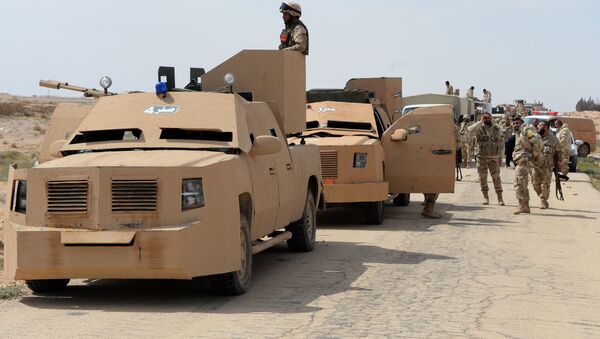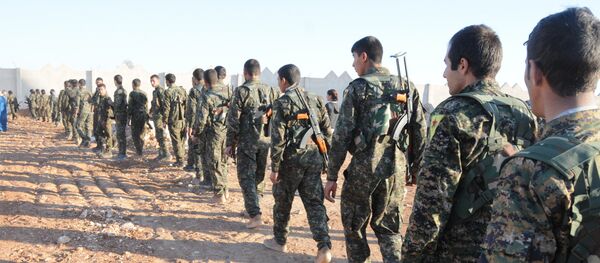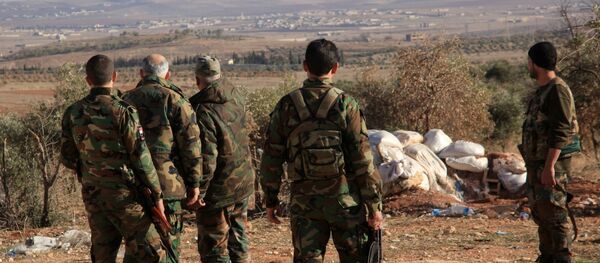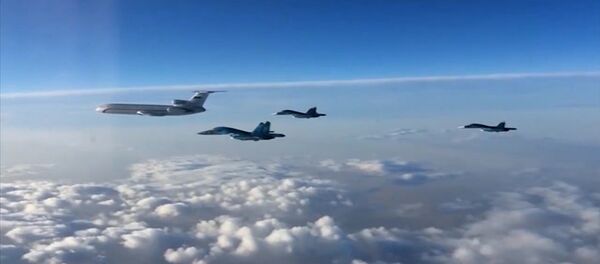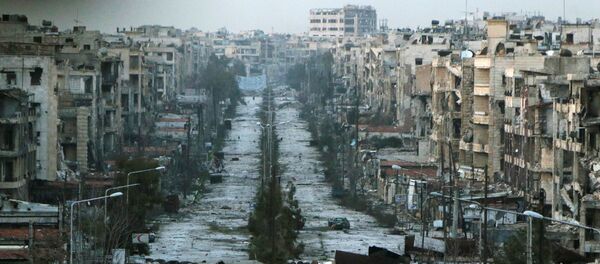Earlier this week, Turkish Foreign Minister Mevlut Cavusoglu announced that Ankara is ready to send special forces troops to Syria to carry out a joint military operation with US troops, on the condition that the US uses their own special forces, and the operation does not include Kurdish militia forces.
"We have our own special forces, they have their own special forces," Cavusoglu said, quoted by the AFP. "The subject we are discussing with the Americans is the closure of the Manbij pocket as soon as possible…and the opening of a second front." The caveat, the minister said, is that "the front be opened without the involvement of the PYD" (the Syrian Kurdish Democratic Union Party).
Last week, the Syrian Democratic Forces, an eclectic collection of militias from northern Syria including the YPG, began a long-awaited three-pronged offensive against Raqqa. However, despite air support from the US-led anti-Daesh coalition, the offensive has been slow-moving, with SDF troops ousting militants from nine settlements and three farm areas so far.
The slow pace of the advance, independent Russian newspaper Svobodnaya Press suggested, "can be explained by the fact that Daesh militants have mined the approaches to the administrative center, set fire to oil fields to cover up their movement, and have used suicide bombers."
"The piquancy of the situation," the paper added, "has been heightened by the fact that Arab-language media have reported the Syrian army has also been activated in the 'race to Raqqa'. According to reports, a group of government troops is being prepped at the border between Raqqa and Hama provinces for an offensive operation to liberate Raqqa from the terrorists. Its strength is believed to amount to a combined 4,500 troops, with units including elements of the Syrian Navy Marines, the Desert Falcons Brigade, the 555th Brigade of the 4th Mechanized Division and militia battalions."
"It's also worth noting that Kurdish sources have said that Turkish special forces have long been operating in Syria, including among opposition groups. Moreover, Turkish forces periodically attack Syrian territory, sometimes setting up roadblocks near towns controlled by the Kurds. Additionally, it's been reported that Ankara would like to oust Daesh and the al-Nusra Front from the cities of Azaz and Jarabulus, and introduce their own forces there under the guise of fighting terrorism."
Speaking to the newspaper, Alexander Khramchikhin, the deputy director of the Moscow- based Institute of Political and Military Analysis, suggested that Foreign Minister Cavusoglu's statement serves as a good potential cover for Turkish forces illegally operating on Syrian territory.
At the same time, the analyst emphasized, the Americans, for their part, "are not ready to quarrel with the Kurds…After a great deal of thought, they have finally chosen to support the Kurds, and the Kurds in turn embody the American plan to take the caliphate's capital. There's no question that the activation of the Syrian Kurdish forces in the direction of Raqqa is an indication that Washington has given them certain promises regarding the prospects for creating a state."
The analyst said this was likely the case because following the liberation of Palmyra, "Assad's forces received access to the M20 highway, which runs through the desert to the city." It is known that a few units of the 11th Tank Division have also been deployed in the eastern part of the province of Homs to participate in the operation to liberate the stretch of highway between Deir ez Zor and Palmyra.
"After that," the analyst said, "it will be possible to turn around toward Raqqa as well. It's entirely possible that we may see a situation where Daesh is attacked by the pro-American coalition on the one hand, and the Syrians, with the support of Russian aviation, on the other. In a way it will be reminiscent of the offensive both sides carried out against Nazi Germany during World War II, only in a more rigid form, because back then there was still a formal alliance between the Soviet Union and the Western allies, and that's not the case in Syria."
For her part, Elena Suponina, an advisor to the Director of the Russian Institute for Strategic Studies, warned that the Turkish foreign minister's words should be considered very carefully in Moscow.
"Turkey and Saudi Arabia have bet on the failure of the Geneva peace talks. Every day the ceasefire is complicated by new incidents. In this regard, Riyadh and Ankara are preparing an 'action plan', in the event of the complete failure of the negotiations. Specifically, Turkey is attempting to persuade the US to work together with them. The danger is that the Turks may thus push Washington the brink of a military confrontation with Russia, since actions uncoordinated with Moscow might provoke a response from our air defenses."
For his part, Sergei Balmasov, a senior analyst at the Center for the Study of the Crisis of Society, told Svobodnaya Pressa that recent developments may have only intensified disagreements between Ankara and Washington.
"For Ankara this is a red line," Balmasov noted, referring to the liberation of Raqqa, explaining that "taking of the Daesh capital would automatically strengthen the position of the Kurds, and then the civil war in Turkey itself will expand with a renewed vigor."
In this connection, the analyst noted, Daesh's recent advance on the town of Mare, in Aleppo province, where local Turkoman militants connected to Turkish intelligence are believed to have gone over to the jihadists' side, was no accident.
"In this way, the Turks are distracting the Kurds from concentrating on Raqqa, forcing them to respond to new challenges and spread their forces in different directions."
In any case, as far as the Kurds' cooperation with Washington is concerned, Balmasov suggested it is not entirely beneficial to the Kurds, no matter what the US is promising. "Of course, the Americans may have promised something to the Kurds, but as we know, the US promises one thing today, and does something else tomorrow. Washington has very rapidly changing priorities and objectives."
"But in strategic terms it is disadvantageous for the Kurds to disperse their forces, whatever they may say publically."

